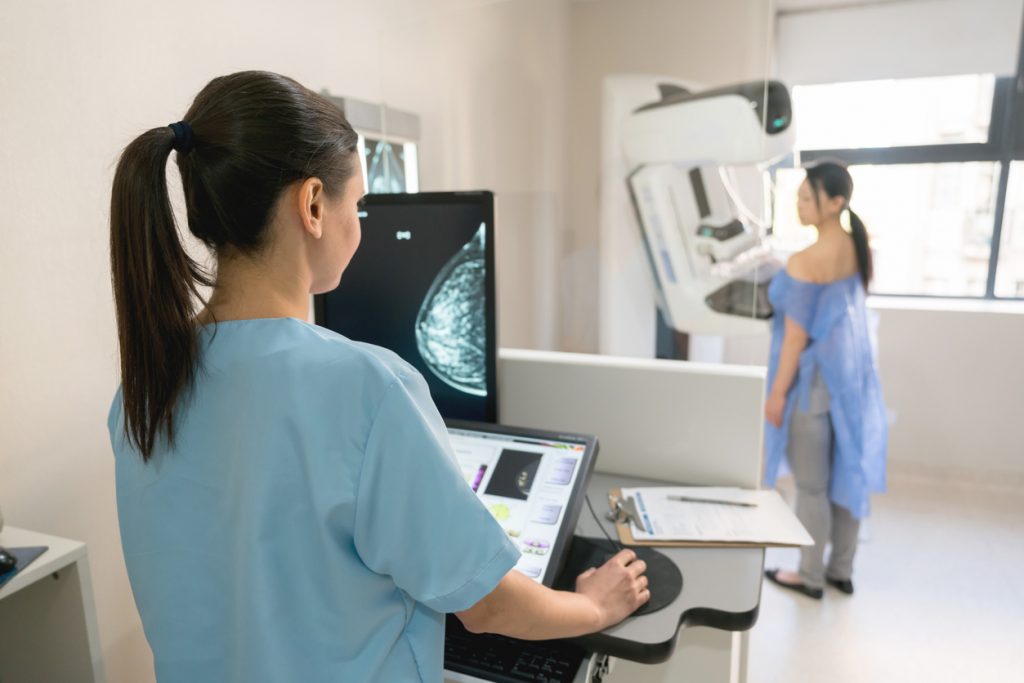Mammogram Technology for Dense Breasts
Dense breasts are common. According to the National Cancer Institute, nearly half of women who are age 40 and over who have mammograms are found to have dense breast tissue. While not abnormal, it’s not possible to detect dense breast tissue during a physical examination. However, dense breast tissue does show up on a mammogram.
Dense breasts contain more glandular tissue, the part of the breast that makes milk. Glandular tissue is more likely to develop cancer, putting women with dense breasts at higher risk. Dense breasts also make it harder to detect cancer using conventional mammography. Since dense breast tissue appears white on a mammogram, cancerous lumps may be hidden.
Factors that Influence Breast Density

- May be inherited
- More common in younger, pre-menopausal women
- Having a low body mass index (BMI); having a thin body type
- Using post-menopausal hormone replacement therapy
Breast density can decrease following menopause.
3D Mammography Improves Cancer Detection
Conventional 2D mammography produces flat images. There will be a top view and a side view of each breast. Overlapping tissue in these images can make it more difficult to detect cancers. It’s even more problematic when the breast tissue is dense.
Radiologists are better able to see through dense breast tissue with 3D imaging, or breast tomosynthesis. This 3D technology produces multiple images, which look like slices. The radiologist can examine each layer looking for abnormalities.
Abnormal areas are sometimes seen on conventional mammograms. However, there are also false positives. This outcome causes anxiety and stress for women who have to return for additional testing, such as an ultrasound. 3D mammography is more precise, so the number of false positives is reduced.
While 3D mammography is becoming more common, it’s not available everywhere. Women with dense breasts may particularly benefit from 3D mammography, as well as women who are at higher risk for developing breast cancer. Those women should definitely seek out a facility that offers it.
Schedule Your Annual Breast Cancer Screening
October is Breast Cancer Awareness Month, the perfect time for women to schedule their annual mammogram. RMD Primary Care encourages women to be proactive in managing their healthcare. Our physicians offer women’s health appointments as part of our Family Medicine Services. Fall is a good time of year for women to take care of their health issues, preventative tests, and cancer screenings. Women’s health also includes menopause and the symptoms that come with it. Contact us to schedule your annual pap smears, breast exams, and mammogram referrals.





